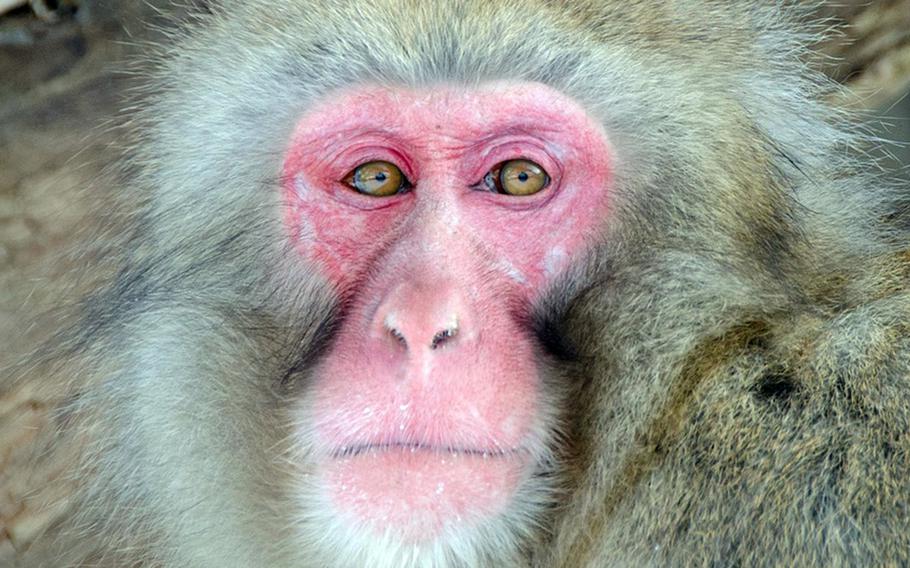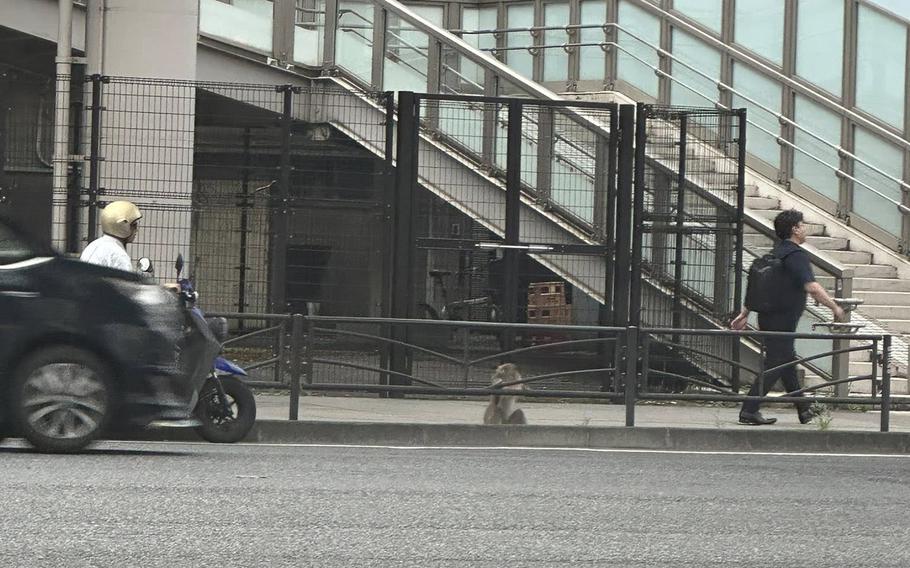
YOKOSUKA NAVAL BASE, Japan — A one-handed monkey is causing a stir in and around the home of the U.S. 7th Fleet, prompting warnings to residents after multiple sightings of the wandering primate.
The Japanese macaque, missing its left hand, was first seen Friday about a mile southwest of the base and was last spotted Sunday afternoon approximately 3 miles northwest, according to Yokosuka city’s website.
Base spokesman Justin Keller confirmed by phone that the monkey was sighted on base Friday, but there were no reported incidents or injuries. He emphasized that anyone who spots a monkey on base should promptly notify security.
As of Monday, no new sightings had been reported in Yokosuka, a city environmental official told Stars and Stripes by phone. However, the animal was seen earlier that day in nearby Yokohama’s Kanazawa ward, the Yokosuka city website said.
The macaque may be the same animal reported multiple times in Kanagawa prefecture since May. A monkey missing its left hand was spotted on May 13 in Sagamihara, home to the U.S. Army’s Camp Zama, roughly 30 miles from the naval base.
Not many monkeys are missing their left hand, the Yokosuka city official said. However, he could not confirm whether the primate spotted over the weekend is the same one observed earlier this year.
The monkey may have traveled through Kamakura, Zushi and Hayama before reaching Yokosuka, according to the city’s website. The animal’s first reported sighting was in May near Chigasaki, about 14 miles west of the naval base.
Base officials posted a warning Friday evening on the installation’s Facebook page, advising people to avoid the monkey.
“Please do not approach, catch or try to feed wild animals,” the post read.
The warning drew significant engagement, with more than 100 comments as of Monday afternoon. Several commenters claimed to have seen the monkey on base.

A wild monkey explores just outside Yokosuka Naval Base, Japan, Aug. 1, 2025. (Stephen Mayfield)
Petty Officer 1st Class Stephen Mayfield photographed the monkey near the main gate. He told Stars and Stripes via Messenger on Monday that he saw the animal while leaving the base. Although he did not see the monkey enter the installation, other social media users claimed it had.
While wild monkeys are not generally considered dangerous, they can become aggressive if provoked. Sudden movements, loud noises and direct eye contact may agitate them.
“To date, there have been no reports of monkeys harming people in the city, but if you do see one, avoid making eye contact with it, back away slowly and calmly, and leave the area,” Yokosuka city’s website warns.
The city also warns against feeding monkeys or pointing cameras at them, and residents are advised to close doors and windows completely. If left alone, monkeys typically return to mountainous areas, it added.
Under Japan’s wildlife protection laws, monkeys cannot be captured unless they have caused injuries, according to a Nov. 2 report by Mainichi, a Japanese newspaper, about an earlier sighting of a macaque missing its left hand.